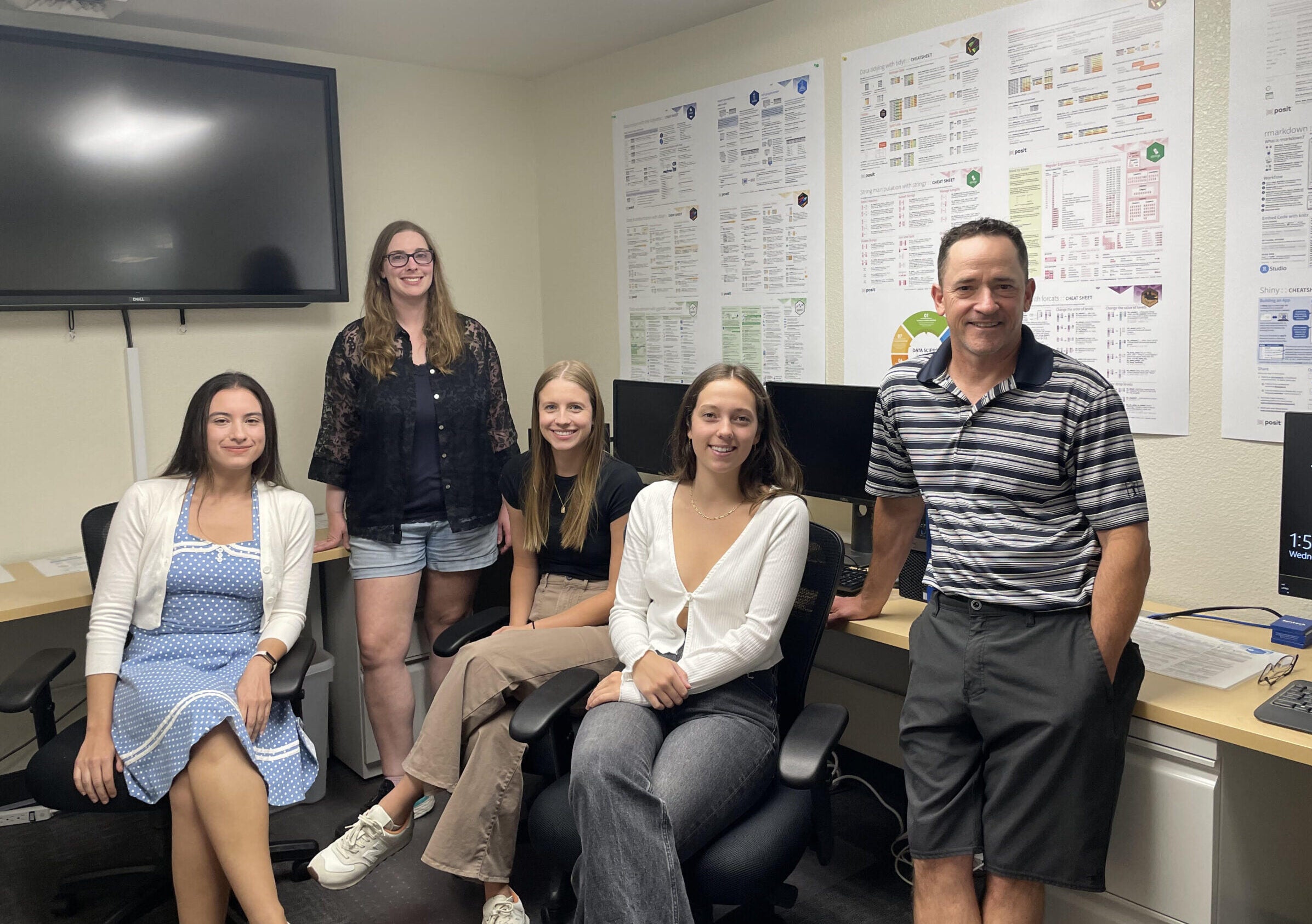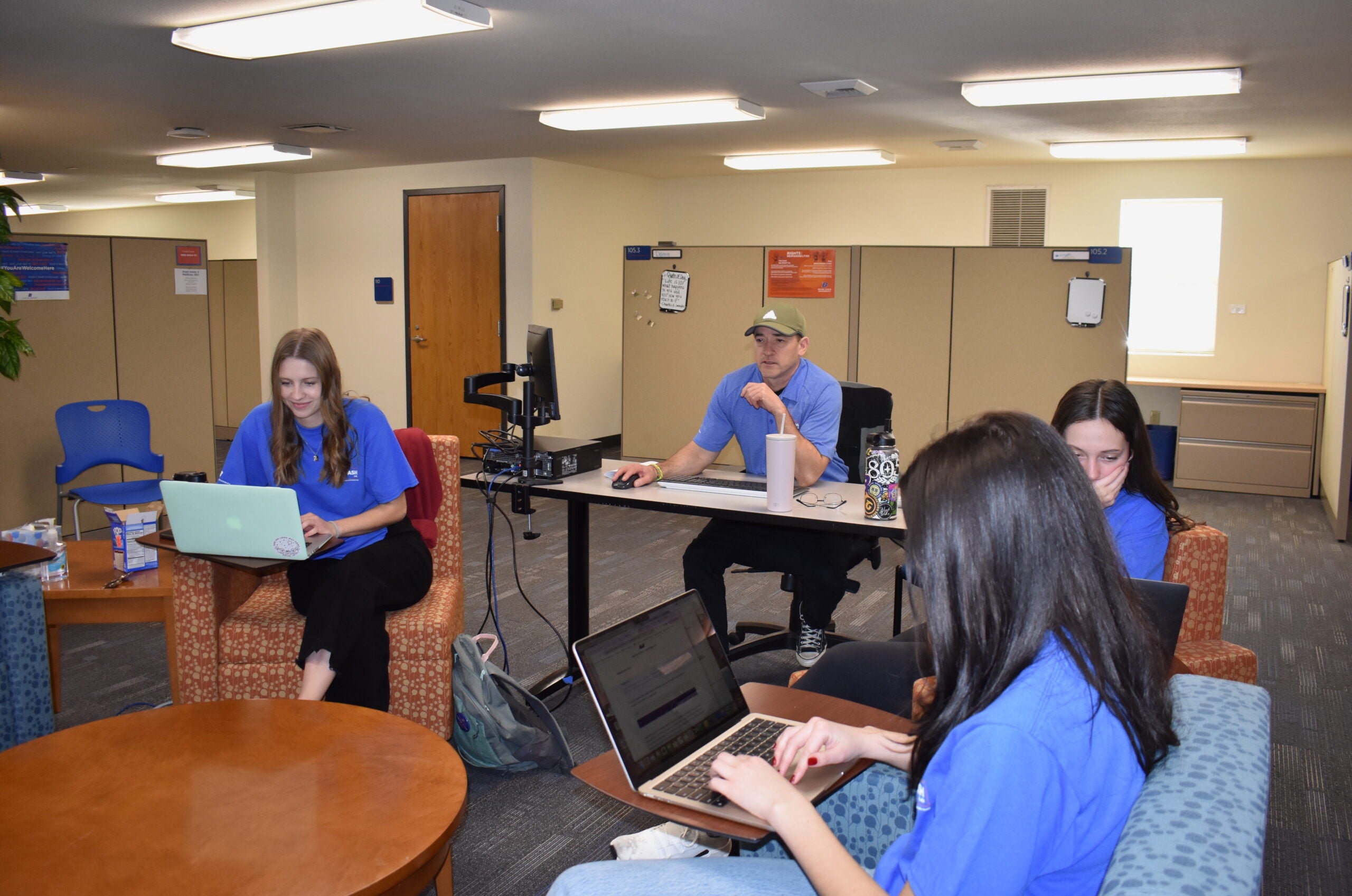
Businesses and organizations across the country and the world talk a lot about “big data:” how to organize it and what to do with it.
Kirk Ketelsen and his students are wading in.
Ketelsen, an associate clinical professor in the Boise State College of Health Sciences School of Public and Population Health, started the Data Analytics for Statewide Health Collaborative — the DASH Lab — in the fall of 2023 with a handful of students, based on similar work being done by a colleague at Purdue University.
The big idea for big data? Immerse students from all backgrounds and learning paths in data science, including big-data collection, aggregation and analysis, picking up strengths in teamwork and community collaboration at the same time. The lab’s early projects are designed to tackle challenges in public health. This inaugural year, for example, the team has partnered with the Idaho Department of Health and Welfare to dive into suicide rate among rural residents, a pernicious problem facing the state.
The lab does not replace multiple ongoing classes, programs and certificates offered within other departments. Rather, it gives students the practical experience, over a full academic year, of working with real challenges being worked on by community organizations. There are no prerequisites and the lab is shaped to teach and train students from all levels of experience and different skill sets. And since it’s a lab, not a classroom experience, participants are rolling up their sleeves and getting to work doing data science. In this first year, two graduate students and three undergrads are taking part.
Lab participants play an active part in designing the work to be done. And they have a deadline: They will report back to their partner organization, the state in this instance, with their findings and conclusions. They’ll also share their work in student research showcases.
Potential additional partners, many of whom face financial and personnel challenges, are finding the idea of an eager and knowledgeable team that can navigate a sea of information attractive, according to the lab’s founder. Word is also getting out among students, who are showing similar enthusiasm.
“There’s a lot of interest in what we’re doing here,” Ketelsen said. “I have yet to find anybody that doesn’t find that it’s a fantastic idea.
“Nobody has anything like this. They see that there’s this real opportunity for something that’s applied, and that really resonates. Things are starting to happen.”

Anita Suljic is one of the five students blazing the trail this year. Suljic is a Master of Public Health student, having received her Boise State bachelor’s degree in health studies with an emphasis in health informatics at the end of 2021. As a BroncoFit graduate assistant, she appreciates the public health aspect of working with other students. She has every intention of applying her DASH Lab skills within public health, but can see how applicable the skills and training are across other industries and fields.
“Big data’s everywhere, so having people who have an understanding is important,” she said. “This preps us going into the real world. As a graduate student, I have appreciated this experience. We’re building autonomy, and it’s a great last internship, a nice big project to be working on near the end of my academic career.”
Suljic and the others have learned computer platform properties, conducted literature reviews, designed research questions and will make recommendations. Significantly, the nine-month course is designed to give students license to figure out questions and challenges themselves, rather than simply searching for a target answer.
“There’s no rubric or guidelines as to what this project needs to be,” she said. “The process and how we choose to deliver the information are up to us. It’s definitely challenged me in new ways.”
Many fields, not just health care, are eager for solutions to data challenges. But, health care is notorious for being slow and somewhat resistant to change, so the work within the College of Health Sciences hopes to spur creative activity.
“We’re lagging a little bit in health sciences, health analytics. It’s a little slow to get going,” Ketelsen notes, adding that students enrolling in a new bachelor’s degree in health data analytics, to launch in the fall, will participate in the lab as a requirement for degree completion. Over time, he envisions multiple projects that embed students in multiple partner organizations through fellowships.
“We talk about data literacy, and the next step is data fluency,” he said. “That’s the world we live in now.”
Interested in joining or working with the DASH Lab? Reach out to Clinical Associate Professor Kirk Ketelsen at KirkKetelsen@boisestate.edu.